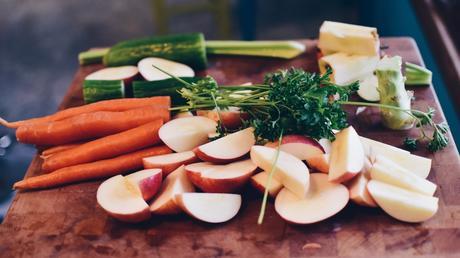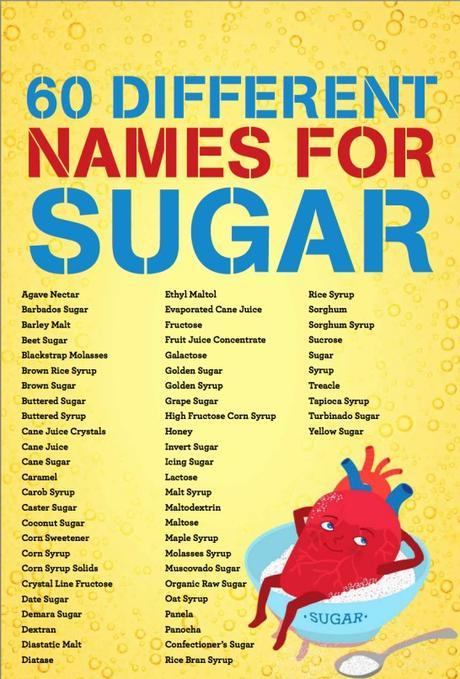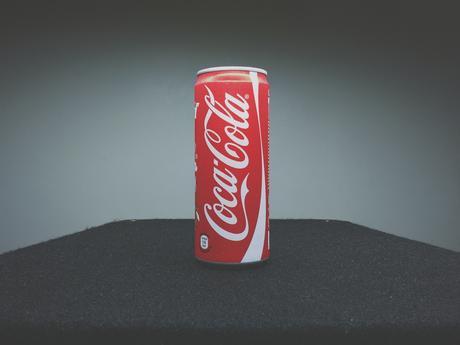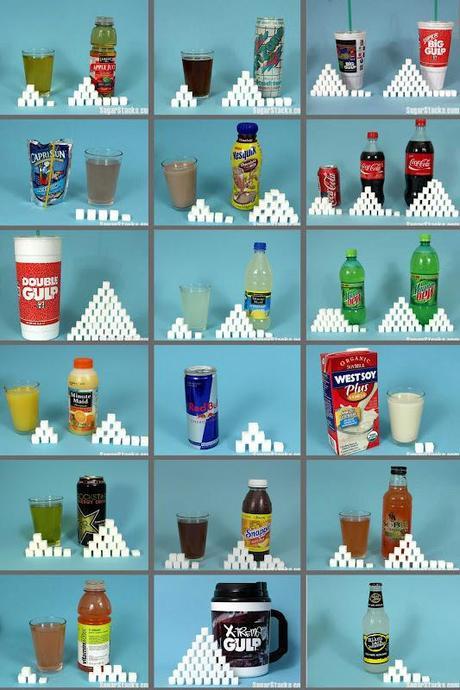
Tips on losing belly fat: How much sugar are you drinking?
What beverage do you reach for when dying of thirst? There's a range of options available from plain old fashioned water, to a broad variety of sports drinks, energy drinks, juices and more.
Some claim to be specially formulated to quench thirst and counter dehydration, perhaps to aid sports performance, maybe just for lifestyle survival. Others are popular because the sweet taste slides down the throat more easily than water, it seems.
The problem with many of these popular drinks is they're laden with sugar, quite possibly the worst ingredient on the planet and already abundant in our everyday diet. The worst ingredient on the planet? Surely that's an exaggeration. We need sugar for energy don’t we?
Well yes, we do. But there's a big difference between naturally occurring sugars and the nasty added sugars that crop up in many drinks and processed foods. Your body doesn't need carbs from added sugar. Added sugar provides insignificant amounts of vitamins and minerals, just a bunch of extra calories. In fact the Healthy Eating Pyramid suggests sugar sweetened drinks should be consumed sparingly, if at all.
Despite recommendations to minimise intake of added sugars consumption has skyrocketed over the past couple of decades and remains alarmingly high. According to Circulation, Americans consume 22 teaspoons of added sugar a day delivering an additional 350 calories to their dietary intake. It's no wonder two-thirds of adults are considered overweight or obese.
While this sounds bad enough, to make matters worse a large proportion of sugar intake is in the form of the cheaper to produce, yet sweeter, fructose or high fructose corn syrup. More on this in a moment.
What's wrong with sugar?

Whats wrong with sugar?
Good question. Everyone loves a tasty treat from time to time. The problem is tasty treats are a frequent daily occurrence nowadays, in fact added sugars are accounting for about 16% of Americans daily calories.
The drastic overconsumption of sugars has left our bodies struggling to cope. The human body can process about 6 teaspoons of added sugar a day. Overwhelm your body with more than this and you are on the slippery slope towards a debilitating disorder or health complaints.
Excess sugar consumption can damage your liver
Some liken too much sugar to the effects of alcohol. Sugar excess in the form of fructose can overload your liver - potentially leading to irreversible damage. Unlike glucose, a simple sugar that can be metabolised throughout the body, fructose can only be broken down in the liver.
Problems arise when your liver is already chock full of glycogen. The resulting excess means fructose will be converted into fat. Some of the fat is distributed throughout the body as blood triglycerides, the remainder builds up in the liver potentially leading to fatty liver disease.
Sugar damages insulin sensitivity
A knock on effect of excess sugar consumption is disruption to your insulin sensitivity. An elevated fructose intake has been associated with insulin resistance in several studies. An increased volume of fats in the blood stream is also thought to be a causative factor.
A number of metabolic issues
Exceeding recommended sugar consumption levels can produce a number of unwanted metabolic issues. Some are obvious like weight gain, belly fat accumulation or obesity. Others such as increased LDL cholesterol, high blood pressure or triglyceride increases are less straightforward.
A number of diseases are linked to metabolic issues associated with prolonged excess sugar consumption such as type 2 diabetes, heart and kidney disease, hypertension, dementia and lipid problems.
But there is sugar in a range of foods that are good for you?

Sugar and fructose in fruit and veggies
That's true. But let's revisit the added vs natural sugars discussion.
Sugars do occur naturally in fruits and veggies. And these are encouraged as part of a healthy diet. Why is this any different than adding sugar to other foods or beverages? Should you be reducing fruit intake too? Definitely not.
Added sugars are chucked into foods to sweeten them or preserve them so they can sit for longer on the shelf. Manufacturers argue this improves convenience. Protractors suggest this maximises company profits. These sugars are different to natural sugars in that they have been removed from their original source and added to food separately.
Sugars such as Fructose are present in fruit and some veggies. But this is where the difference comes in. Within these healthy food choices the fructose is encased in a cellular scaffolding called fiber. Fibre plays a vital role in slowing the absorption of fructose, allowing the liver time to metabolise the sugar and minimise the insulin response. Fibre also plays a key role in managing hunger by making you feel fuller… reducing cravings and limiting overeating.
Sugars available in fruit don't have free reign on the liver and are less likely to be turned into fat. In fact, evidence suggests the consumption of fruit and veggies may help prevent weight gain and reduce obesity risk, although the caveat is they should be part of a healthy diet low in fat and added sugars.
One of the problems with monitoring sugar intake is there are many different terms for the substance. Companies are becoming increasingly clever, or perhaps malicious, disguising sugar with a variety of names to minimise consumer visibility of ingredients. By way of example: here are a bunch of the names sugar can be hidden under on labels.

How much sugar are you drinking?
Source: ThatSugarFilm.com
So where is all the added sugar coming from?
Major sources of sugar include:
- Sugar sweetened beverages such as soda, sports drinks, fruit juices or energy drinks
- Candy or sweets
- Cookies and cakes
- Donuts, pastries and pies
- Desserts like icecream
How much is too much?
Surely you can have a treat every now and then? The American Heart Association has released guidelines on the maximum volume of added sugars you should consume on a daily basis. They are probably a lot lower than you expect. Women should consume no more than 6 teaspoons per day, which equates to 25 grams or 100 calories. Men on the other hand can have slightly more with 9 teaspoons (37.5 grams or 150 calories).
The recommendation of the AHA is that Americans significantly reduce sugar intake in order to combat a widespread obesity epidemic and associated diseases. Is this message getting through? Perhaps. Some researchers have identified a recent decrease in added sugar consumption. Although levels still remain way above the recommended intake.
The United States spends almost $200 billion a year on the treatment of obesity-related health issues. Should more of the focus be on limiting access to soft drinks and sodas?
Soft drinks are laden with sugar

Coca-cola and tips on losing belly fat
Let's talk specifically about sugar sweetened beverages now. These are a major contributor to the obesity epidemic. A 20-ounce or 600ml bottle of coke (for example) could include up to 16.9 teaspoons of sugar and 240 'empty' calories. Despite obvious implications on weight management, companies like Coca-Cola are quick to absolve responsibility for obesity and associated health complaints. What's more... they spend billions ($3.2 in 2006) marketing carbonated beverages, much of which is directed at the youth market.
Breakdown of individual drinks and sugar intake
Have a look at the diagram below from sugarstacks.com that tries to visually demonstrate the volume of sugar in a range of sugar sweetened beverages. Alarming isn't it?

How much sugar is in your drink?
Let's look at the numbers in a bit more detail.
How Much Sugar Are You Drinking? (Grams)
Sources
Sugarstacks.com
Cnn.com
Health.act.gov.au
How to minimise sugars in the diet
Are you looking for tips to losing belly fat? Minimise your sugar intake. Perhaps the most obvious place to start is the reduce your intake of sugar sweetened beverages. But what are you going to replace your mid afternoon coke, morning fruit juice or post drinking chocolate milk with?
The answer is pretty simple. Water! Drink water for weight loss instead of soda or juices. Drink it ice cold and you could significantly increase resting energy expenditure - further assisting your weight loss efforts.
If you must have a coffee or tea as part of your morning or evening ritual, make sure you avoid the couple of extra teaspoons of sugar you routinely place in each cup. Alternatively, look for a natural zero calorie alternative to sugar such as the naturally occurring stevia.
How do you minimise the amount of sugar you are drinking every day? Let us know below.

